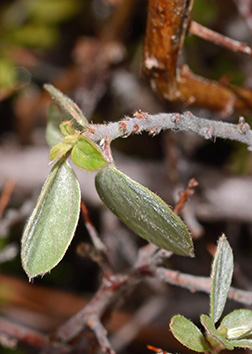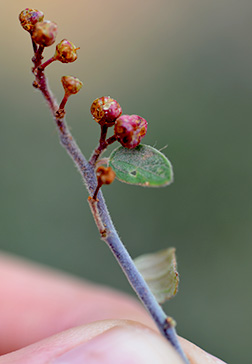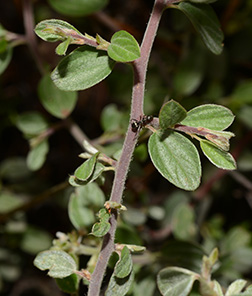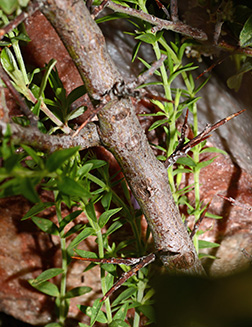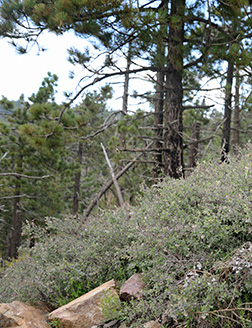 Virginia Tech Dendrology
Virginia Tech Dendrology
Fendler's ceanothus Rhamnaceae Ceanothus
fendleri A. Gray
![]()
![]() symbol: CEFE
symbol: CEFE
Leaf: Alternate, simple, evergreen, ovate to elliptical in shape, about 1 inch long, 3-veined with rounded bases, entire margins, and acute to obtuse tips, dark green above, paler gray-green and glabrous or slightly pubescent, especially along veins below.
Flower: Small, white to pink, fragrant, displayed in a dense panicle-like inflorescence 1 to 2 inches across, appearing in the spring and early summer.
Fruit: Red to pink 3-lobed capsule, 1/6 inch across, rough in texture, and slightly sticky when young.
Twig: Rigid and thorny at the tip, terminal branchlets are thin and divergent; pubescent, gray-green when young, red-brown when mature.
Bark: Smooth, older bark is whitish with yellow-green spiny branchlets.
Form: A spiny shrub to 6 feet with an intricate branching pattern.
Looks like: desert ceanothus
- whitethorn ceanothus
- narrowleaf buckbrush
- deerbrush
Additional Range Information: Ceanothus fendleri is native to North America. Range may be expanded by planting. Download the full-size PDF map.
External Links: USDA Plants Database
All material 2021 Virginia Tech Dept. of Forest Resources and Environmental Conservation; Photos and text by: John Seiler, Edward Jensen, Alex Niemiera, and John Peterson; Silvics reprinted from Ag Handbook 654; range map source information
